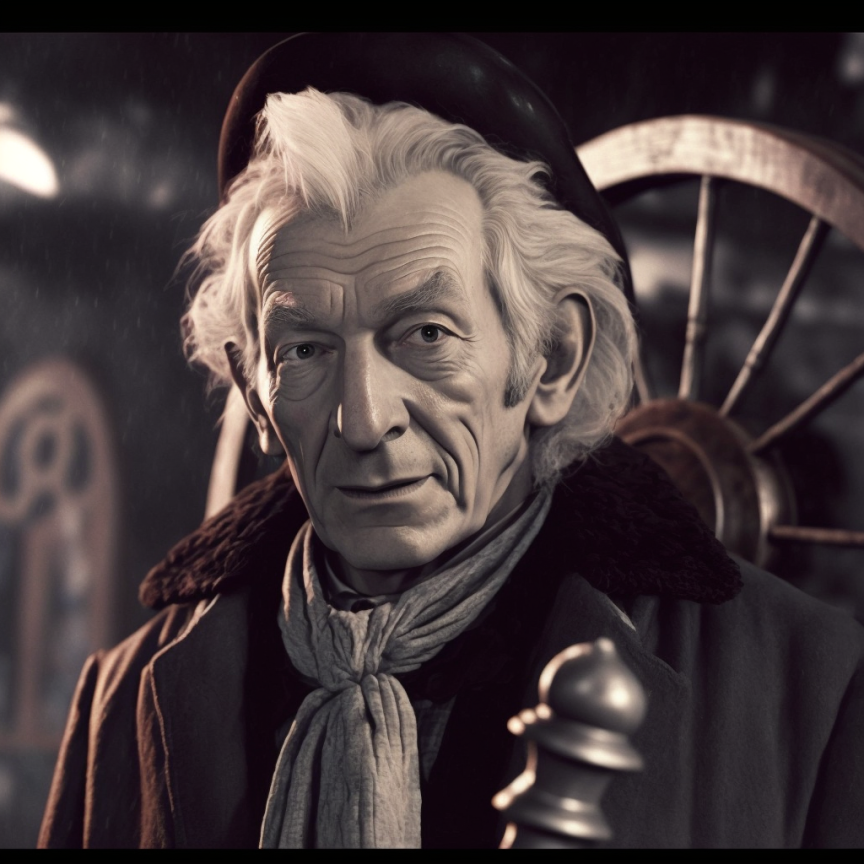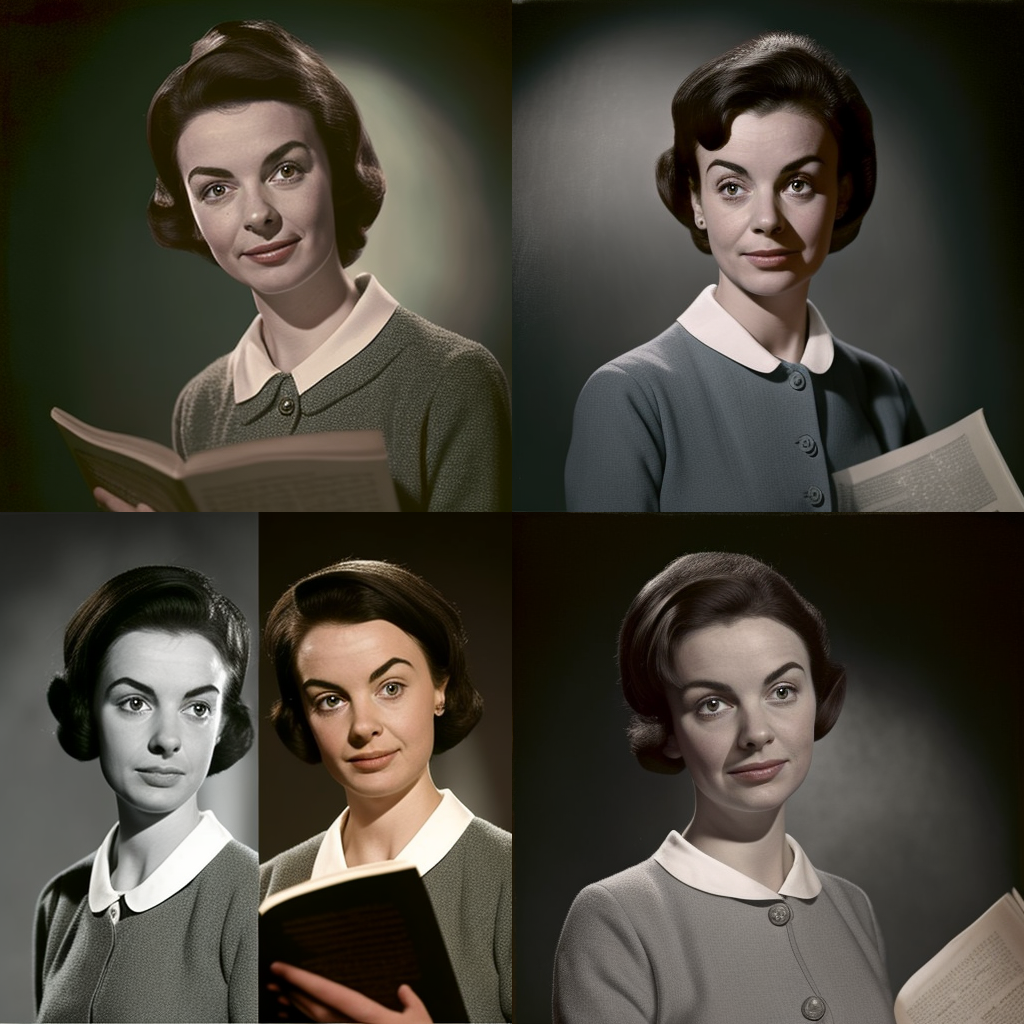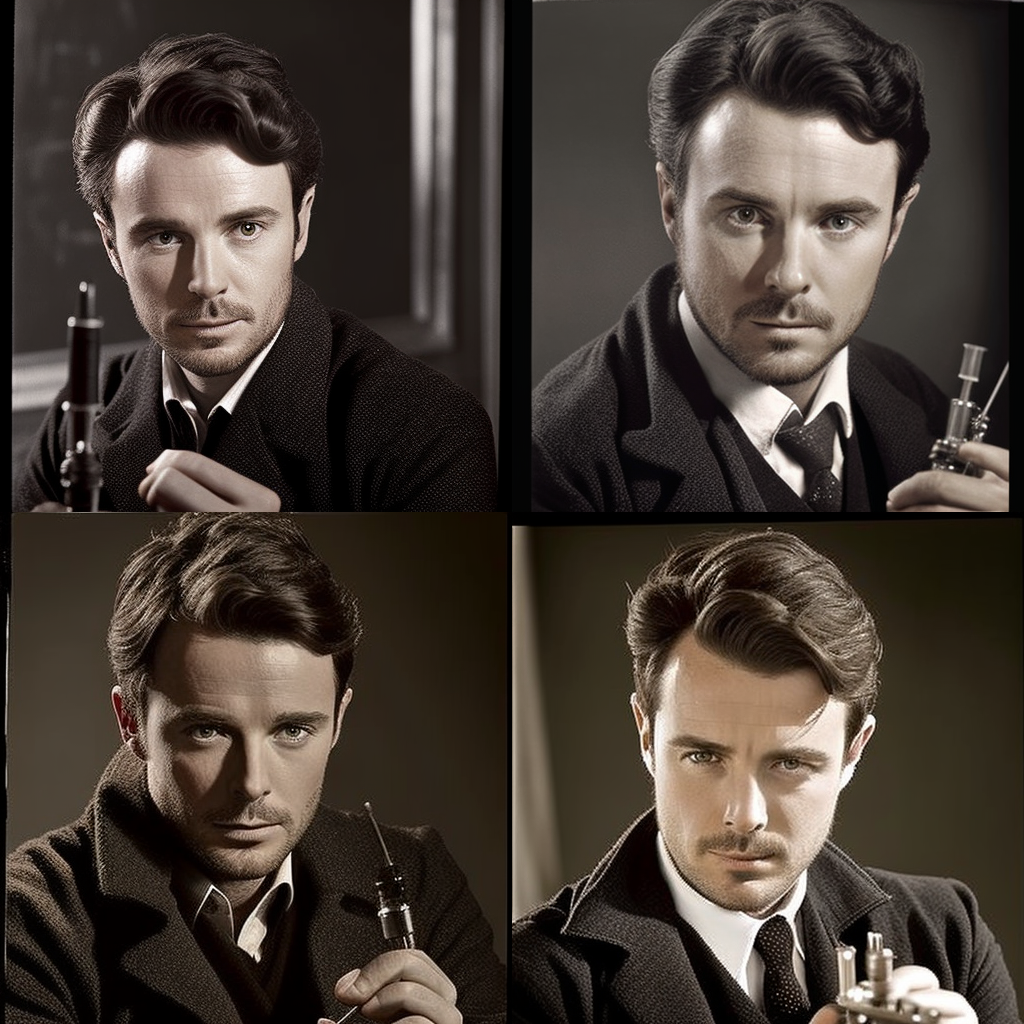The First Doctor
Series 1
One of the great strengths of the first season of Doctor Who was David Whitaker’s literary influence on the development of the mythos, blending this with spectacle and memorable imagery, necessary for a popular family television show, based on being simply superb in feeding children’s imaginations. The development of the characters in is also central to this success.
The Doctor
The character of the Doctor does not begin as a hero. He is a refugee, responsible for his granddaughter’s safety first and foremost, and after which his own; he is – and this cannot be overstated enough – scared. Whoever he is running from, he believes that ‘they’ can be, and sometimes are, on his trail; that recapture is far more likely than escape, and that this chronic unease at detection informs his secretive, even paranoid behaviour and attitude. He understands only too well the power of those that he has defied, and he is consequently distrustful of everyone – even two seemingly-normal secondary school teachers from London, 1963, whom he suspects could be not who they say they are, or at least not be acting entirely of their own volition…
I don’t think anybody really wants to know exactly why and how the Doctor escaped his home planet, and it is enough to allude to him being an exile, even more so a refugee: He can never go back home again, and – at this point in time, on Earth in the days before the great winter of 1963 – he is not yet ready to face his future as a wanderer, opting instead for a quiet life where his granddaughter can grow up safe and perhaps even happy, and where he can be left to tinker in solitude as they hunker down ahead of a great and oncoming snowstorm. In this way, the depiction of the Doctor as an elderly, Edwardian crank-scientist is a perfectly conceived one, especially relevant to a sixty-something year old man seemingly born at the turn of the twentieth century, and all that that would subsequently have entailed.
And with the help of AI image generating platforms, Lens and Midjourney, Ian McKellen is our reimagined First Doctor.

Susan Foreman
Far more will need to be made of the character of Susan than was originally developed on-screen. The great ‘what-if?’ around Susan is the oft-quoted reference Carole Ann Ford has made to Sydney Newman’s original pitch of the character to her as being like Honor Blackman’s cat-suited, karate-chopping character, Mrs Catherine Gale, in The Avengers, only with telepathic powers; something that we saw a little of even as late as “The Sensorites” in 1964, but which was largely then forgotten about and thereafter never used. I think that a kind of latent telepathy that she is capable of would make the character far more interesting, alluding to both an alien-ness as well a strongly empathetic character, while the capacity for feats of enormous agility and strength would at the same time add a kind of Buffy aspect that both could prove immediately recognisable or at least positive as the younger female lead character. The idea that, as an alien, she is able to think and act quicker and with more alacrity than humans is an appealing one (and can even account for why the Doctor has such a keen intelligence and is also capable, at times, of surprisingly sprightly displays of physicality himself).
The ‘girl out of time’ element not just echoes her shared background and ancestry with the Doctor, but also allows for a teenage identification figure for the audience; someone who feels like they just don’t belong, caught between two worlds (both in respect to child- and adult-hood, as well as her home planet in the far future and Earth in the early ‘60s), but equally someone just wishing so much simply to belong. The depiction of Susan that does work so beautifully through flashbacks framed by Ian and Barbara’s observations of her to one another (and, consequently, the audience) in the first episode of the original relies heavily on this dual role, making her sympathetic and intriguing, familiar and alien, all at the same time. Of course she would like pop music and listen avidly to the radio – she’s a fifteen-year-old girl! – and this is her time; yet, equally, she is terrified of anyone finding out about who she really is, and must keep her true life separate from the one that she pretends to live. In this way, there is even a queer subtext to her character; something that could provide for even more nuance and depth to her character.
Ultimately, her telepathy and her physical abilities provide her with not just more agency but more stuff to do in her stories. She is never just the damsel in distress, even if she is also – as Newman conceived – “a kid to get into trouble” for plot reasons. With the promise of Susan fulfilled in this version of the character, we make one of our first big changes to the mythos – we no longer need Vikki, who was essentially Susan ‘done right’.
My pick to play Susan Foreman here is Millie Bobbie Brown:

Ian Chesterton and Barbara Wright
As the first episode is primarily about Susan, and about introducing the mystery of the titular character of the Doctor, Ian and Barbara only really serve to offer a ‘normal’ point of view for the viewer on the strange events. Even so, we learn enough about their backstories regarding their occupation, and their humanity in caring for a troubled girl that simultaneously blends into a statement as to their curiosity. The first episode is about the mystery of Susan, which is bound up in the deeper mystery of the Doctor, as framed through the eyes of two ordinary-enough members of the public whom we can all identify, and maybe even identify with; however, their humanising effect on the Doctor (and, to an extent, on Susan), however, is perhaps one of the most salient developments throughout the first series, and there are episodes that are framed predominantly through the perspectives and experiences of two ordinary people who have fallen out of their time and into the most wonderous of adventures.
Ian is the archetypal (post-)War Hero, having returned to civilian life and contributing to the rebuild of the home front. In that regard, the character is unique in all of Doctor Who in that he is amongst the very tail end of the Golden Generation that out-fought and, crucially, out-thought the Nazis. I see Ian as one of the last of the Renaissance Men, a character who is reaches towards (if not is able to achieve) a strong working knowledge of all fields of knowledge; to be both St Jerome and St George in the one person. There are careful steps to be trod through a confluence of Christian, secular, and Western Liberal discourses, but there is an authenticity to the era that can be evoked when navigating those waters. Through travelling with the Doctor and Susan, Ian is able to again bring out the best of himself and to live the most fulfilled version of a eudaimonic life, allowing him to in many ways redeem the experiences of wartime and peace. In that way, he perhaps exemplifies a thought of Socrates that the best human virtues can only be forged in times of war – but that it is in civic life where they are best applied.
Barbara, on the other hand, you would suspect of being further along the spectrum of progressive liberalism that was at the forefront of the emerging wave of western culture, particularly some fifteen to not-quite twenty years after the War. At around 35 and generationally middle class, she is slightly too square to have been native to the ‘beatnik’ generation and slightly too old to in a brief 18 months be swept into the Swinging Sixties. Nonetheless, her life experiences means she sits adjacent to both of these movements; as a Cambridge graduate, she is intellectually- as well as, crucially, culturally- informed of identifying with the increasingly societally liberal developments of her time. Having remained single – whether through choice or heartbreak – and having pursued postgraduate study in History, Barbara is also marked as distinct in her worldview from others among her generation who became the mothers to the Boomer Generation and housewives to the returned servicemen. Despite her independence, Barbara suspects that there is more to life than the opportunities that she has found and fought for herself, even if she frustratingly could never find it amongst her own travels, studies, and freedom. Travelling through space and time brings her to find exactly the kind of wonder that she has long-suspected was missing all these years.
In this series, Jessica Raine plays Barbara Wright and Tom Riley is Ian Chesterton (with variations on a theme by Midjourney’s AI):


Remember to share your thoughts in the comments section below